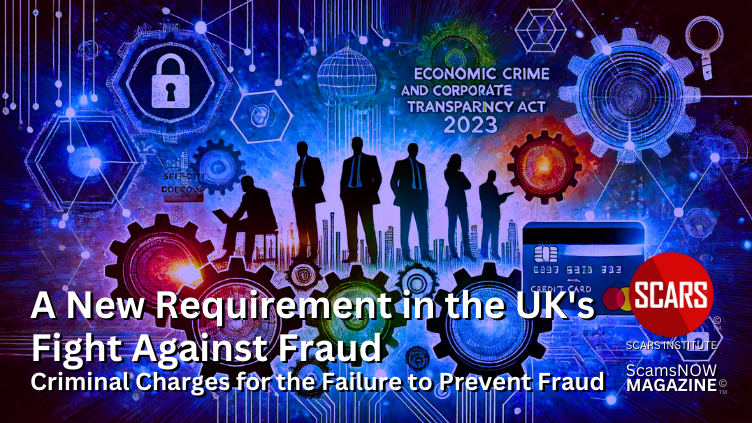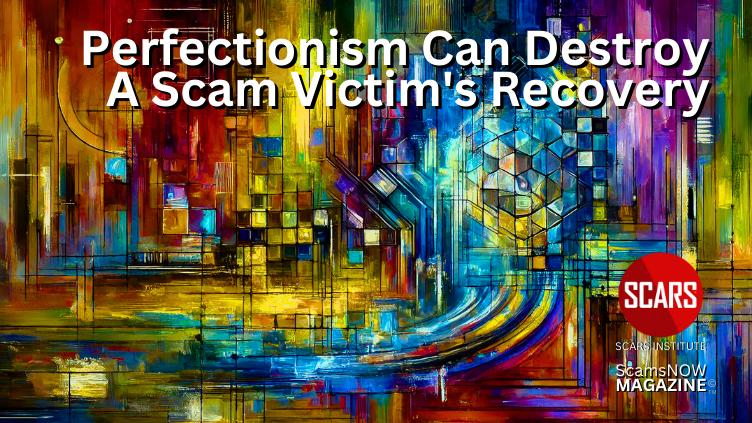Quick Guide to Scam Victims’ Grief
SCARS Institute’s Quick Guide to Surviving Scam Victims’ Grief After a Relationship Scam
Primary Category: Scam Victims Recovery Psychology
Authors:
• Vianey Gonzalez B.Sc(Psych) – Licensed Psychologist Specialty in Crime Victim Trauma Therapy, Neuropsychologist, Certified Deception Professional, Psychology Advisory Panel & Director of the Society of Citizens Against Relationship Scams Inc.
• Tim McGuinness, Ph.D. – Anthropologist, Scientist, Director of the Society of Citizens Against Relationship Scams Inc.
About This Article
Healing from a relationship scam involves acknowledging and processing the complex grief that follows such a betrayal. It’s crucial to validate your emotions, understand the tactics used against you, and release any self-blame.
Taking small, achievable steps—like journaling, setting daily goals, and seeking social support—helps build resilience and foster self-trust. Rediscovering personal interests and considering professional counseling can aid in coping with the emotional aftermath. Ultimately, by reframing the experience as an opportunity for growth, you can gradually rebuild your identity, find new meaning, and move forward with renewed strength and confidence.

SCARS Institute’s Quick Guide to Surviving Scam Victims’ Grief After a Relationship Scam
Experiencing grief after a relationship scam is normal and valid, and it can be incredibly challenging.
You’ve faced a layered form of loss—not only the end of a relationship but also a betrayal of trust, identity, and self-worth. Moving from devastation to resilience takes time, self-care, and structured guidance. Alongside the emotional trauma, grief is a real part of healing from this crime. This guide offers empathetic steps to help you find a path toward recovery and rediscovery.
Recognize and Accept Your Grief
Grieving after a relationship scam is not only expected but necessary. Understand that grief is a natural response to emotional loss. Allow yourself to feel these emotions without suppressing them; accepting these feelings is the first step toward healing. Suppressing emotions can lead to long-term psychological harm, so embrace your feelings as part of your recovery.
Action Step: Start a daily journal to express your emotions, no matter how raw they feel. This practice will help you face your pain and make sense of complex feelings. You can find the official SCARS Institute Scam Victims-Survivor’s Journal at our bookshop at shop.AgainstScams.org
Validate Your Experience and Emotions
Shame or self-blame often comes with these experiences, so it’s essential to validate your own emotions. Remember, you were targeted by a scammer who used deliberate manipulation tactics, which can happen to anyone. Normalizing your reactions helps you separate your self-worth from the scam.
Action Step: Try a self-compassion exercise by writing a letter to yourself, as if a friend were offering understanding and kindness. This can help to reaffirm your worth and validate your grief.
Educate Yourself about Trauma and Emotional Manipulation
Understanding trauma, especially from emotional manipulation, can help you frame your experience objectively. Knowing that scammers use specific tactics and understanding their methods can reduce feelings of guilt. This knowledge reminds you that you were tricked through no fault of your own.
Action Step: Read trusted resources about relationship scams and manipulation, or enroll in the SCARS Institute’s free Scam Survivor’s School at www.SCARSeducation.org for structured information. Awareness provides a foundation to release self-blame and see your pain as a reaction to betrayal, not personal weakness.
Set Realistic Goals for Your Healing
Moving forward involves setting achievable, practical goals to build a sense of accomplishment. Breaking recovery into small steps makes it feel manageable and reminds you that you’re progressing, even slowly.
Action Step: Start with one small, meaningful daily goal, such as taking a walk or reading a few pages of a book. Even small steps reaffirm that healing is possible.
Find Social Support and Connection
Isolation can deepen grief, so reach out to trusted people—friends, family, or professionally managed support groups dedicated to scam survivors. You may feel embarrassed, but connecting with others can provide empathy and ease feelings of loneliness.
Action Step: Join a SCARS Institute support and recovery group online to connect with others who understand what you’re going through. You can sign up at support.AgainstScams.org.
Axios – Work on Restoring Your Self-Worth and Trust
A relationship scam affects your trust in others and in yourself. Rebuilding self-worth means learning to trust your own judgment again. Taking small risks in supportive environments can gradually restore your confidence.
Action Step: Practice small acts of self-trust, like making minor daily decisions without overthinking. Surrounding yourself with trustworthy people can also help repair social trust.
Develop Healthy Coping Mechanisms
The grief from a relationship scam can lead to anxiety, depression, or post-traumatic stress. Cultivating healthy coping mechanisms, such as exercise, creative outlets, or relaxation methods, can ease your emotional strain and distress.
Action Step: Commit to self-care habits like daily walks, meditation, or creative expression. These regular practices build mental resilience, helping you handle difficult emotions more constructively.
Rediscover Meaning and Interests
Part of healing is rediscovering joy and purpose beyond the relationship. It’s common to feel detached from former interests, but over time, exploring new hobbies or returning to old passions can help you reconnect with yourself.
Action Step: Make a list of activities you once enjoyed or would like to try, starting with one small step each week. Pursuing these interests helps you rebuild your identity and renew your inner connection.
Seek Professional Help When Needed
Sometimes, moving through the grief of a relationship scam requires professional help. Therapy can be essential if you’re struggling to manage emotions or if depression or anxiety is disrupting your life. A mental health professional can provide you with tools and perspectives for recovery.
Action Step: Explore therapy options, including SCARS Institute’s free counseling services (while available) at support.AgainstScams.org or look for therapists specializing in trauma and loss at counseling.AgainstScams.org.
Reframe the Experience as a Learning Opportunity
While it’s hard to see this immediately, every experience offers lessons. Over time, try to identify positive insights from this ordeal, such as a better understanding of your needs, resilience, or heightened awareness.
Action Step: Start a “Growth Journal” to note small lessons or strengths you recognize as you recover. This shifts your perspective, viewing the experience as a challenging chapter that builds character rather than defining you. You can find the official SCARS Institute Scam Victims-Survivor’s Journal at our bookshop at shop.AgainstScams.org
Remember
Healing from a relationship scam is a journey of rediscovery. By acknowledging your grief, validating your emotions, and gradually rebuilding trust in yourself, you can regain your sense of self and find new meaning in life. This process is yours to take at your own pace, with each step bringing you closer to a renewed, resilient self.
Please Rate This Article
Please Leave Us Your Comment
Also, tell us of any topics we might have missed.
Thank you for your comment. You may receive an email to follow up. We never share your data with marketers.
-/ 30 /-
What do you think about this?
Please share your thoughts in a comment above!
-/ 30 /-
What do you think about this?
Please share your thoughts in a comment above!
ARTICLE RATING
TABLE OF CONTENTS
- SCARS Institute’s Quick Guide to Surviving Scam Victims’ Grief After a Relationship Scam
- About This Article
- SCARS Institute’s Quick Guide to Surviving Scam Victims’ Grief After a Relationship Scam
- Recognize and Accept Your Grief
- Validate Your Experience and Emotions
- Educate Yourself about Trauma and Emotional Manipulation
- Set Realistic Goals for Your Healing
- Find Social Support and Connection
- Axios – Work on Restoring Your Self-Worth and Trust
- Develop Healthy Coping Mechanisms
- Rediscover Meaning and Interests
- Seek Professional Help When Needed
- Reframe the Experience as a Learning Opportunity
- Remember
- Important Information for New Scam Victims
- Statement About Victim Blaming
- SCARS INSTITUTE RESOURCES:
- Psychology Disclaimer:
- More ScamsNOW.com Articles
- A Question of Trust
- SCARS Institute™ ScamsNOW Magazine
Society of Citizens Against Relationship Scams Inc. [SCARS]
META
CATEGORIES
MOST POPULAR COMMENTED ARTICLES
POPULAR ARTICLES
U.S. & Canada Suicide Lifeline 988
![NavyLogo@4x-81[1]](https://scamsnow.com/wp-content/uploads/2025/04/NavyLogo@4x-811.png)
WHAT PEOPLE ARE TALKING ABOUT
LATEST SITE COMMENTS
See Comments for this Article at the Bottom of the Page
on Vulnerability to Scams Caused by Past Relationships is Like a River Running through Your Life Cutting Channels – 2025: “My big take away from this article is that there are many layers to my vulnerability. Yes, losing my Mom…” May 8, 11:43
on Hate for Scammers and Criminals Feels So Good But is So Bad for Scam Victims – 2025: “As stated here it feels like it should be justified – to hate them. I never did feel that way,…” May 6, 17:32
on Scam Victims Suppressing Trauma Or Avoiding Recovery And Healing 2024: “This is a great article that will, hopefully, help when I am avoiding facing my emotions/triggers. Recognizing the signs and…” May 6, 16:47
on SCARS 5 Coping Techniques For Traumatized Scam Victims – 2023: “One of the best ways of coping for me has been to reconnect with my friends. I self-isolated for months…” May 6, 16:07
on Trauma Recollection/Traumatic Flashbacks And Scam Victim PTSD – Recovery Psychology – 2023: “I don’t feel like my trauma can be described as PTSD. The affects after the scam ended were severe anxiety,…” May 6, 15:55
on Selective Amnesia and Scam Victim Psychological Trauma 2023: “This was a very interesting article to me. I have not experienced selective amnesia in relation to the scam. However,…” May 6, 15:39
on Psychological Triggers/Emotional Triggers – What They Are And How They Work – 2023/2024: “Not long after my scam ended, I needed to go to the grocery store. It never crossed my mind that…” May 6, 14:48
on Learning And The Challenges That A Scam Victim Faces From Trauma And Related Cognitive Effects – 2024: “My cognitive impairment was bad right after my scam. However, I have now noticed that it was especially bad during…” May 6, 14:23
on Hate for Scammers and Criminals Feels So Good But is So Bad for Scam Victims – 2025: “This is all true and valid. I had to forgive myself first for trusting my abuser because he hurt my…” May 6, 10:08
on Nirvana and the Path to Letting Go of Suffering – 2025: “En mi experiencia podría describir el nirvana en mi recuperación como ese estado de paz profunda y liberación emocional que…” May 5, 18:58
on The Prodigal Son or Daughter – Returning ‘Home’ After the Scam – 2025: “It’s true that the judgment of others does not define my path but if after “coming home” those closest to…” May 5, 13:21
on Beginning Again and Scam Victim Recovery -2025: “Taking action is the first step to recovery and I am doing that and becoming a newer stronger version of…” May 5, 09:53
on Beginning Again and Scam Victim Recovery -2025: “In order not to let this deception define me, since its discovery I have been ACTING.” May 5, 07:22
on The Butterfly Effect And Scam Victims – 2024: “Very good and interesting analogy to the Butterfly Effect and how it pertains to scams. In my crime I can…” May 4, 14:51
on Faith And Why It Matters In Scam Victim Recovery – 2024: “This is a good article giving examples of the difference between faith in oneself and one’s core values – to…” May 4, 13:37
on Reclaiming Your Worth: A Scam Survivor’s Guide to Navigating Your Worthiness After a Scam – 2023: “As an individual I process my emotions slowly whether it is shock, trauma, anger, disbelief. In the cycle of recovery…” May 4, 12:54
on The Stain that Never Goes Away After a Romance Scam for Scam Victims – 2025: “Thank you for sharing this important step on recovery” May 4, 12:09
on Metanoia – The Transformation for Traumatized Scam Victims – 2025: “Excelente articulo!!!… Después de superar la estafa podría describir la metanoia en mi propia experiancia como un renacimiento interior, una…” May 4, 00:24
on Philosophy of Life Planning – From Chaos to Order and the Scam Victim Recovery Path Forward – 2025: “Seeking justice is, unfortunately, not justice. Anger and revenge is not justice either. Recovery is justice. The only justice for…” May 3, 21:16
Important Information for New Scam Victims
Please visit www.ScamVictimsSupport.org – a SCARS Website for New Scam Victims & Sextortion Victims
SCARS Institute now offers a free recovery program at www.SCARSeducation.org
Please visit www.ScamPsychology.org – to more fully understand the psychological concepts involved in scams and scam victim recovery
If you are looking for local trauma counselors, please visit counseling.AgainstScams.org
If you need to speak with someone now, you can dial 988 or find phone numbers for crisis hotlines all around the world here: www.opencounseling.com/suicide-hotlines
Statement About Victim Blaming
Some of our articles discuss various aspects of victims. This is both about better understanding victims (the science of victimology) and their behaviors and psychology. This helps us to educate victims/survivors about why these crimes happened and not to blame themselves, better develop recovery programs, and help victims avoid scams in the future. At times, this may sound like blaming the victim, but it does not blame scam victims; we are simply explaining the hows and whys of the experience victims have.
These articles, about the Psychology of Scams or Victim Psychology – meaning that all humans have psychological or cognitive characteristics in common that can either be exploited or work against us – help us all to understand the unique challenges victims face before, during, and after scams, fraud, or cybercrimes. These sometimes talk about some of the vulnerabilities the scammers exploit. Victims rarely have control of them or are even aware of them, until something like a scam happens, and then they can learn how their mind works and how to overcome these mechanisms.
Articles like these help victims and others understand these processes and how to help prevent them from being exploited again or to help them recover more easily by understanding their post-scam behaviors. Learn more about the Psychology of Scams at www.ScamPsychology.org
SCARS INSTITUTE RESOURCES:
IF YOU HAVE BEEN VICTIMIZED BY A SCAM OR CYBERCRIME
♦ If you are a victim of scams, go to www.ScamVictimsSupport.org for real knowledge and help
♦ Enroll in SCARS Scam Survivor’s School now at www.SCARSeducation.org
♦ To report criminals, visit https://reporting.AgainstScams.org – we will NEVER give your data to money recovery companies like some do!
♦ Sign up for our free support & recovery help by https://support.AgainstScams.org
♦ Join our WhatsApp Chat Group at: https://chat.whatsapp.com/BPDSYlkdHBbDBg8gfTGb02
♦ Follow us on X: https://x.com/RomanceScamsNow
♦ Follow us and find our podcasts, webinars, and helpful videos on YouTube: https://www.youtube.com/@RomancescamsNowcom
♦ SCARS Institute Songs for Victim-Survivors: https://www.youtube.com/playlist…
♦ See SCARS Institute Scam Victim Self-Help Books at https://shop.AgainstScams.org
♦ Learn about the Psychology of Scams at www.ScamPsychology.org
♦ Dig deeper into the reality of scams, fraud, and cybercrime at www.ScamsNOW.com and www.RomanceScamsNOW.com
♦ Scam Survivor’s Stories: www.ScamSurvivorStories.org
♦ For Scam Victim Advocates visit www.ScamVictimsAdvocates.org
♦ See more scammer photos on www.ScammerPhotos.com
You can also find the SCARS Institute on Facebook, Instagram, X, LinkedIn, and TruthSocial
Psychology Disclaimer:
All articles about psychology and the human brain on this website are for information & education only
The information provided in this and other SCARS articles are intended for educational and self-help purposes only and should not be construed as a substitute for professional therapy or counseling.
Note about Mindfulness: Mindfulness practices have the potential to create psychological distress for some individuals. Please consult a mental health professional or experienced meditation instructor for guidance should you encounter difficulties.
While any self-help techniques outlined herein may be beneficial for scam victims seeking to recover from their experience and move towards recovery, it is important to consult with a qualified mental health professional before initiating any course of action. Each individual’s experience and needs are unique, and what works for one person may not be suitable for another.
Additionally, any approach may not be appropriate for individuals with certain pre-existing mental health conditions or trauma histories. It is advisable to seek guidance from a licensed therapist or counselor who can provide personalized support, guidance, and treatment tailored to your specific needs.
If you are experiencing significant distress or emotional difficulties related to a scam or other traumatic event, please consult your doctor or mental health provider for appropriate care and support.
Also read our SCARS Institute Statement about Professional Care for Scam Victims – click here
If you are in crisis, feeling desperate, or in despair, please call 988 or your local crisis hotline.
More ScamsNOW.com Articles
A Question of Trust
At the SCARS Institute, we invite you to do your own research on the topics we speak about and publish. Our team investigates the subject being discussed, especially when it comes to understanding the scam victims-survivors’ experience. You can do Google searches, but in many cases, you will have to wade through scientific papers and studies. However, remember that biases and perspectives matter and influence the outcome. Regardless, we encourage you to explore these topics as thoroughly as you can for your own awareness.















![scars-institute[1]](https://scamsnow.com/wp-content/uploads/2025/04/scars-institute1.png)
![niprc1.png1_-150×1501-1[1]](https://scamsnow.com/wp-content/uploads/2025/04/niprc1.png1_-150x1501-11.webp)

Leave a Reply